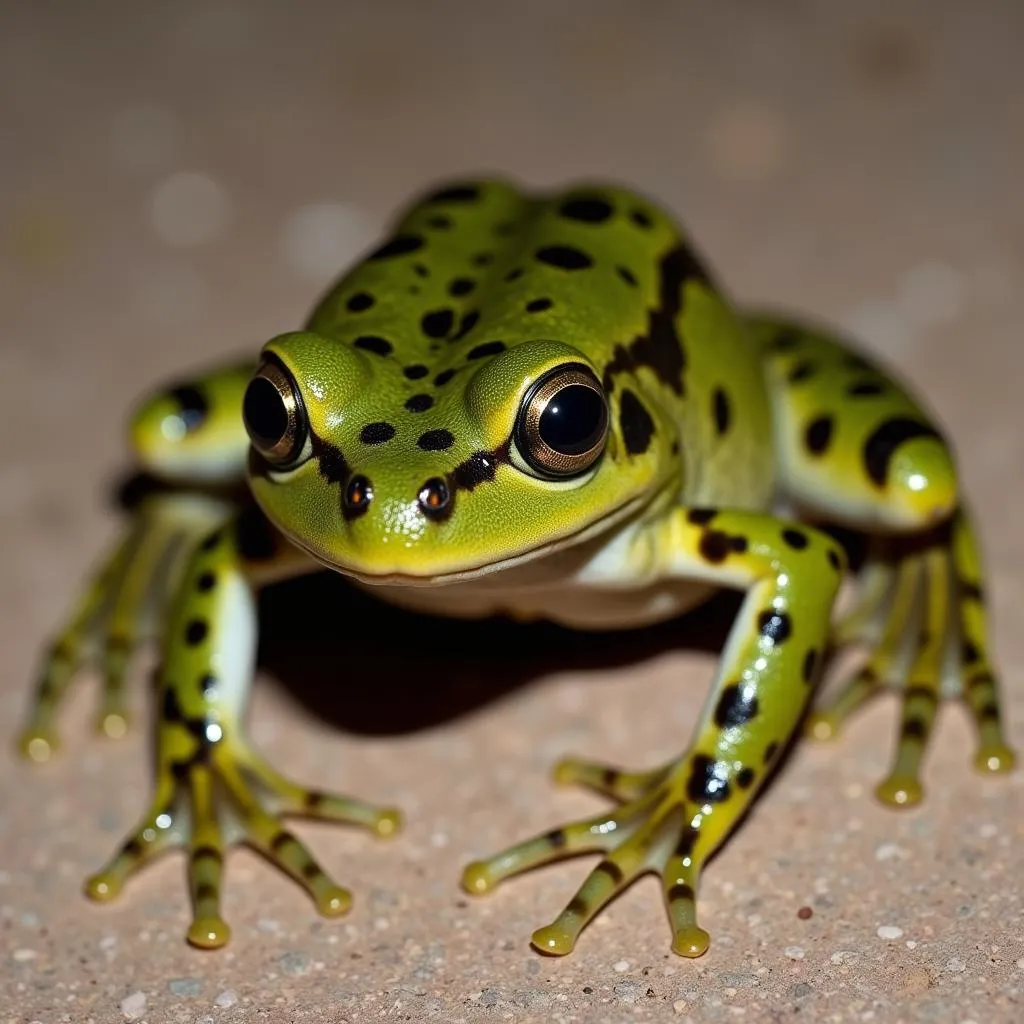African Elephant Prey: Unveiling the Giants’ Diet
African elephants, the largest land mammals on Earth, are herbivores with an insatiable appetite. Their dietary choices play a crucial role in shaping the African landscape and influencing the delicate balance of its ecosystems. Understanding what African elephants eat provides valuable insights into their behavior, habitat requirements, and the intricate web of life they sustain.
A Diverse and Abundant Menu: What Do African Elephants Eat?
African elephants are primarily grazers, meaning their diet consists mainly of grass. However, they are also known to browse on leaves, fruits, bark, twigs, and roots, especially during the dry season when grass is scarce. This flexible feeding strategy makes them opportunistic eaters, capable of surviving in a variety of habitats across the African continent.
Their diet can include over 100 different plant species, varying depending on factors like geographic location, seasonality, and food availability. Here are some common components of an African elephant’s diet:
- Grasses: Bermuda grass, star grass, elephant grass
- Fruits: Marula fruit, wild mangoes, baobab fruit
- Leaves: Acacia leaves, mopane leaves, baobab leaves
- Bark: Acacia bark, baobab bark
- Roots and Tubers: Water lily roots, various tubers
The Importance of Quantity: How Much Do African Elephants Eat?
With their massive size comes an equally massive appetite. An adult African elephant can consume up to 300 pounds (136 kilograms) of food and drink up to 50 gallons (189 liters) of water in a single day. This incredible intake is necessary to fuel their large bodies and support their energy needs.
This enormous consumption has a significant impact on their surroundings. By clearing vast areas of vegetation, they create open spaces that allow for new growth and benefit other herbivores. Their dung, rich in nutrients and seeds, acts as a natural fertilizer, dispersing seeds across the landscape and promoting plant diversity.
Adapting to Survive: Seasonal Changes and Dietary Shifts
The African landscape is characterized by distinct wet and dry seasons, which directly influence the availability of food and water. African elephants have adapted to these seasonal changes by altering their dietary preferences and foraging strategies.
During the wet season, when lush vegetation abounds, they primarily graze on grasses. As the dry season sets in and grass becomes scarce, they shift their focus to browsing, relying more heavily on leaves, twigs, and bark.
The Role of Elephants in the Ecosystem: More Than Just Eaters
African elephants are considered a keystone species, meaning their presence is crucial for maintaining the health and biodiversity of their ecosystems. Their feeding habits have a ripple effect on the environment, impacting a wide range of plant and animal species. Here’s how:
- Seed Dispersal: Many plant species rely on elephants to disperse their seeds. Seeds ingested by elephants pass through their digestive system and are deposited in their dung, which acts as a natural fertilizer.
- Habitat Modification: Elephants create clearings in dense vegetation, allowing sunlight to reach the forest floor and promoting the growth of new plants. These clearings also provide habitat for other animals.
- Nutrient Cycling: Elephant dung is rich in nutrients and plays a vital role in fertilizing the soil.
Threats to Elephants and Their Food Sources
Sadly, African elephant populations face numerous threats, primarily from habitat loss due to human encroachment, agriculture, and infrastructure development. Poaching for ivory remains a serious concern, further endangering these magnificent creatures.
As their natural habitats shrink and food sources become scarcer, elephants are forced to compete with humans and livestock for resources. This can lead to human-wildlife conflict and negatively impact both elephant populations and local communities.
Conservation Efforts and the Future of African Elephants
Protecting African elephants and their habitats is crucial for ensuring the long-term survival of these magnificent animals and preserving the delicate balance of African ecosystems. Conservation efforts include:
- Anti-poaching initiatives: Strengthening law enforcement, increasing penalties for poaching, and reducing demand for ivory.
- Habitat protection and restoration: Establishing protected areas, creating wildlife corridors, and promoting sustainable land-use practices.
- Community-based conservation: Engaging local communities in conservation efforts, providing alternative livelihoods, and raising awareness about the importance of elephants.
By understanding the dietary needs and ecological significance of African elephants, we can work towards mitigating threats and ensuring a future where these gentle giants continue to roam the African plains for generations to come.
FAQ: Frequently Asked Questions about African Elephant Prey
1. What is the main food source for African elephants?
Grasses make up the majority of an African elephant’s diet, especially during the wet season.
2. Do African elephants eat meat?
No, African elephants are herbivores, meaning they only eat plants.
3. How does the dry season affect an African elephant’s diet?
During the dry season, elephants shift from grazing to browsing, consuming more leaves, twigs, and bark.
4. Why are African elephants considered a keystone species?
Their feeding habits have a significant impact on their environment, influencing plant diversity, habitat creation, and nutrient cycling.
5. How can I help protect African elephants?
You can support reputable conservation organizations, raise awareness about elephant conservation, and make conscious choices to reduce your environmental footprint.
Ready to Explore More?
Dive deeper into the fascinating world of African wildlife with these related articles:
- African Animal Ratel: Learn about the honey badger, a fearless creature that shares the African landscape with elephants.
- African Climate and Forest and Wildlife Resources: Discover the diverse ecosystems that support African elephants and other wildlife.
- African Jungle Food Chain: Explore the intricate web of life in the African jungle, where elephants play a crucial role.
For any inquiries or assistance, our dedicated team is here to help. Contact us at +255768904061, email us at kaka.mag@gmail.com, or visit our office in Mbarali DC Mawindi, Kangaga, Tanzania. We offer 24/7 customer support.

